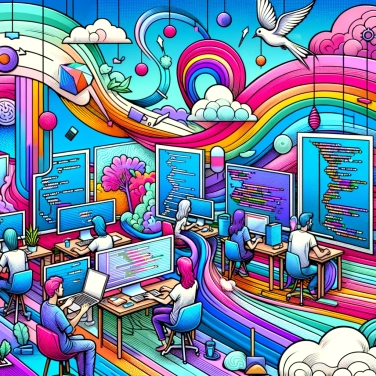In detail, for those interested!
Facilitates code understanding
The common practice of adding relevant comments in the source code greatly facilitates the understanding of the code for developers. Comments can explain the overall operation of the program, clarify complex parts of the code, provide information about the variables and functions used, or describe the algorithms implemented. By highlighting the developer's intentions, comments allow anyone working on the code to quickly grasp its operation and navigate more easily through the programming logic in place. They thus play a crucial role in the readability and understanding of the source code, promoting more efficient development and simplified maintenance.
Encourages collaboration between developers.
Collaboration among developers is a crucial element in any programming project. The use of comments in the source code promotes this collaboration by allowing team members to better understand each other's work. Comments help to explain design choices, complex algorithms, or parts of the code that may be difficult to interpret simply by reading the code. This transparency facilitates communication among developers, leading to better coordination and increased overall project efficiency.
Allows to document the code and its functionalities.
The presence of comments in the source code is crucial to document the code and its functionalities. These annotations can explain the purpose of a section of code, how it works, the variables used, as well as the decisions made during its design. By adding relevant comments, developers can more easily understand the code written by others or even by themselves at an earlier time. This allows for a better understanding of the overall operation of the software and facilitates its future maintenance. Comments therefore serve as a reference for current and future developers, contributing to the clarity and sustainability of the source code.
Contribute to code maintenance and debugging.
Adding comments in the source code of a computer program can greatly help facilitate the maintenance and later debugging of the code. Comments can explain how complex parts of the code work, analyze specific design choices, or document programming tricks used. In case of a problem or a bug, the presence of detailed comments can allow developers working on the code to quickly understand the underlying logic and identify more easily the origin of the malfunction. Thus, comments help to speed up the troubleshooting and error correction process, contributing to a more effective code maintenance.
![Explain why some countries change time zones?]()
![Explain why Alexander the Great refused to wear shoes.]()
![Explain why Alexander the Great always wore an impressive helmet.]()
![Explain why the last Chinese emperor was so young when he came to power?]()





















